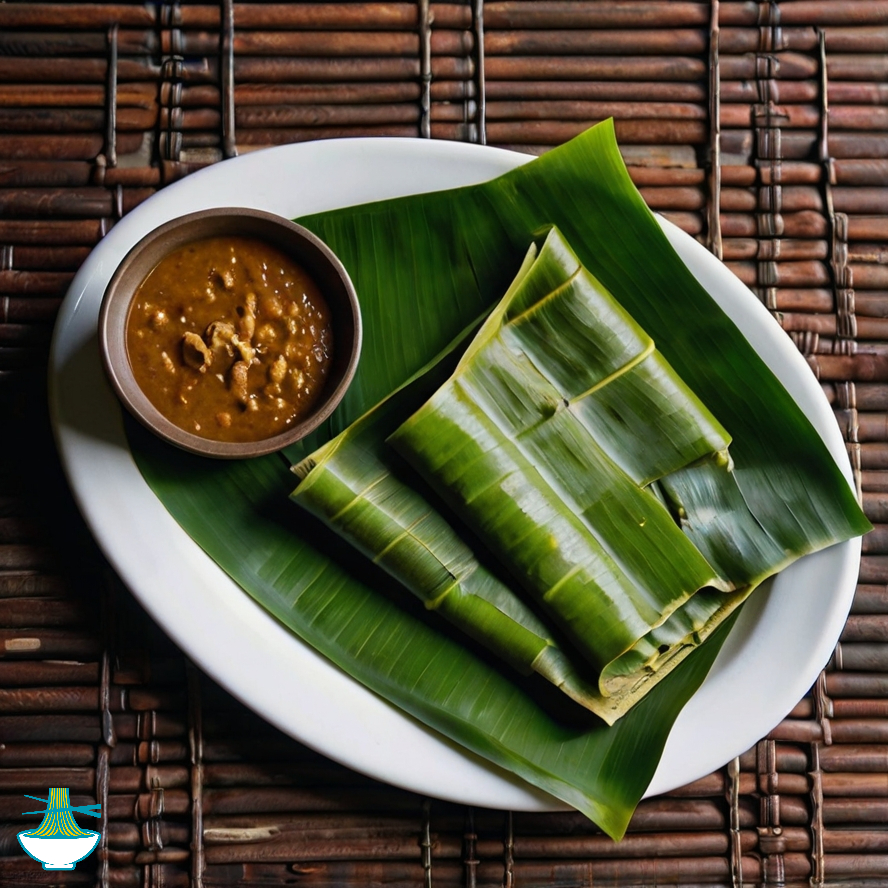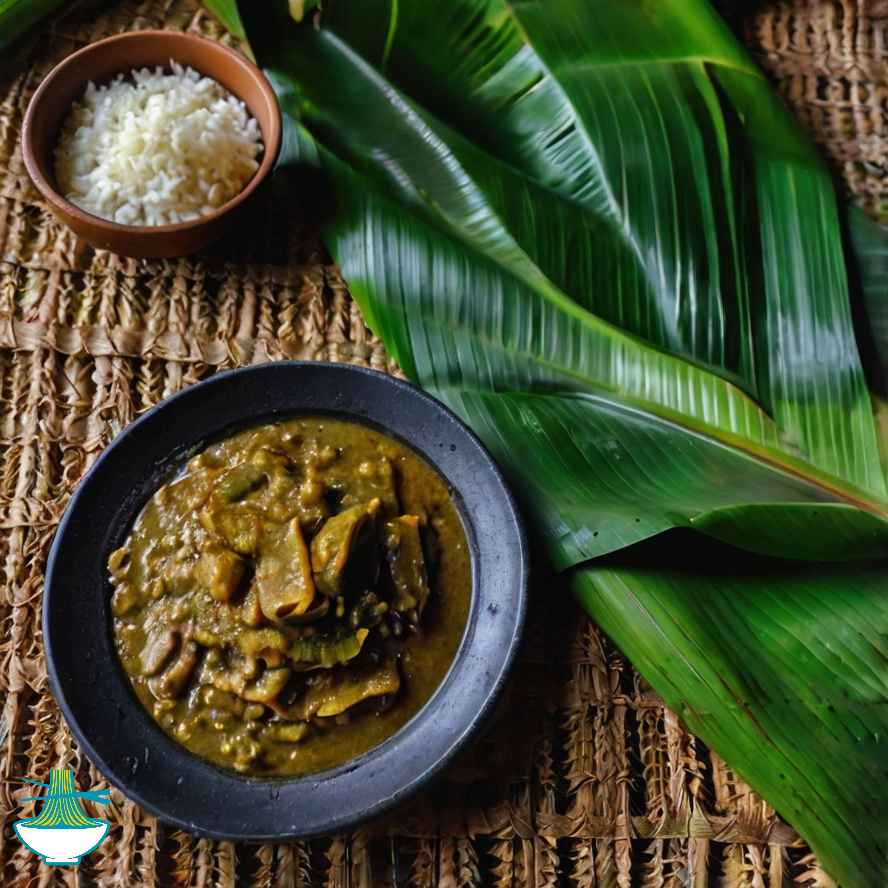Malewa, a traditional African dish, features banana leaves cooked with groundnut paste, often served alongside millet or rice. Its origins date back generations, cherished for its simplicity and rich flavors, reflecting the cultural heritage of the region.
Ingredients:
- Banana leaves
- Groundnuts (peanuts)
- Salt to taste
- Water
Method:
1. Clean banana leaves and cut them into manageable sizes.
2. Roast groundnuts until golden brown, then grind into a fine paste.
3. Spread groundnut paste evenly onto banana leaves.
4. Fold and secure the leaves to form packets.
5. Steam the packets until the banana leaves are tender.
6. Serve warm as a side dish with millet or rice.
Nutrition Value:
1. Banana Leaves:
- Calories: Negligible (mainly dietary fiber)
- Carbohydrates: Negligible
- Protein: Negligible
- Fat: Negligible
- Sodium: Negligible
- Cholesterol: Negligible
- Vitamins: Contains vitamin A, vitamin C, and small amounts of vitamin B6
- Minerals: Contains small amounts of potassium, calcium, magnesium, and iron
- Nutritional Benefit: Banana leaves are primarily used as a wrapping for cooking, adding flavor and aroma to dishes without significantly contributing to the nutritional content. They are also believed to have some antioxidant properties.
2. Groundnuts (Peanuts):
- Calories: Approximately 567 calories per 100g
- Carbohydrates: Around 16g per 100g
- Protein: About 25g per 100g
- Fat: Around 49g per 100g (mostly unsaturated fats)
- Sodium: Around 18mg per 100g
- Cholesterol: 0mg
- Vitamins: Rich in vitamin E, niacin (B3), folate (B9), and small amounts of thiamine (B1), riboflavin (B2), and pantothenic acid (B5)
- Minerals: Contains high levels of magnesium, phosphorus, potassium, zinc, copper, manganese, and small amounts of calcium, iron, and selenium
- Nutritional Benefit: Peanuts are an excellent source of protein, healthy fats, and various vitamins and minerals. They provide energy, promote heart health, aid in weight management, and support overall well-being.
3. Salt:
- Calories: Negligible
- Carbohydrates: Negligible
- Protein: Negligible
- Fat: Negligible
- Sodium: Varies depending on quantity added
- Cholesterol: Negligible
- Vitamins: Negligible
- Minerals: Primarily sodium
- Nutritional Benefit: Salt enhances flavor in dishes, helps preserve food, and is essential for various bodily functions. However, excessive consumption can contribute to high blood pressure and other health issues.
4. Water:
- Calories: 0
- Carbohydrates: 0
- Protein: 0
- Fat: 0
- Sodium: 0
- Cholesterol: 0
- Vitamins: 0
- Minerals: 0
- Nutritional Benefit: Water is essential for hydration and maintaining bodily functions. It aids digestion, regulates body temperature, cushions joints, and supports nutrient transport and waste removal.


Comments